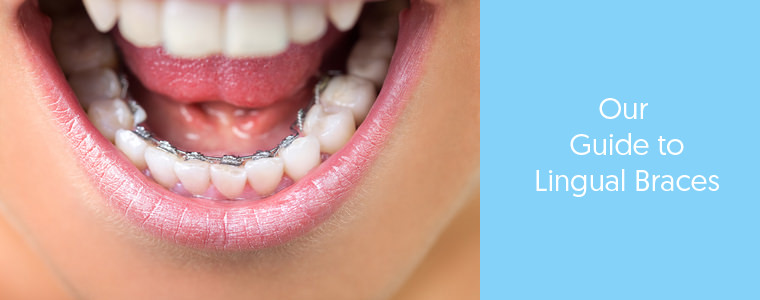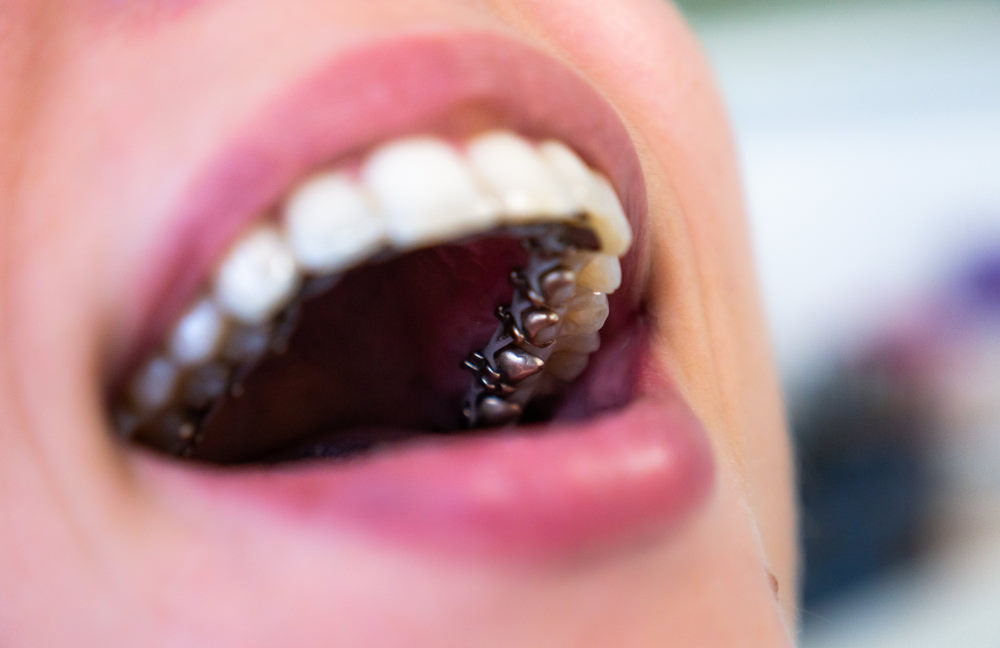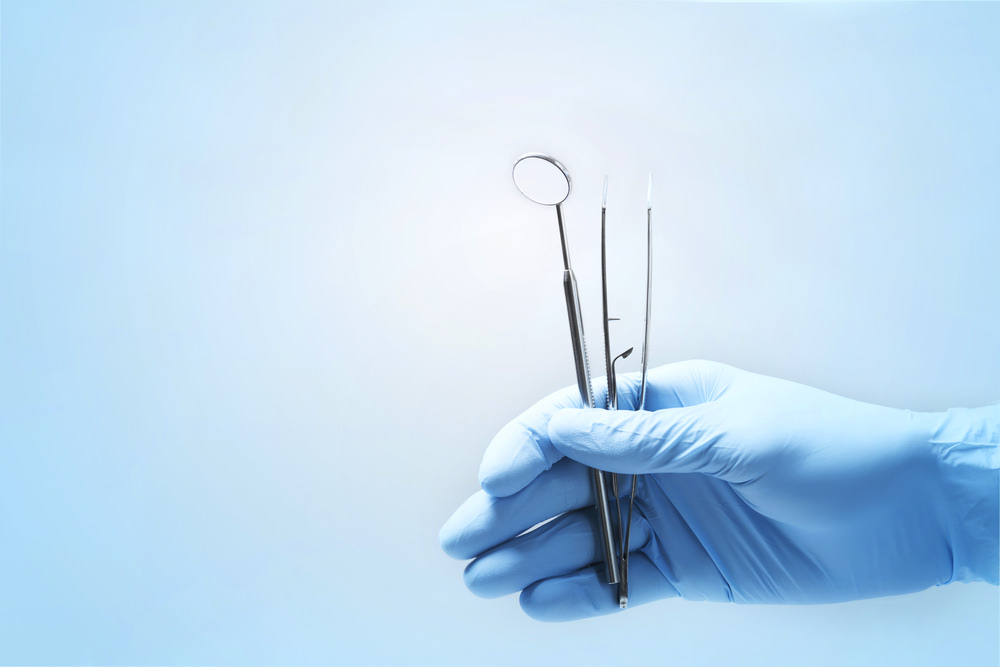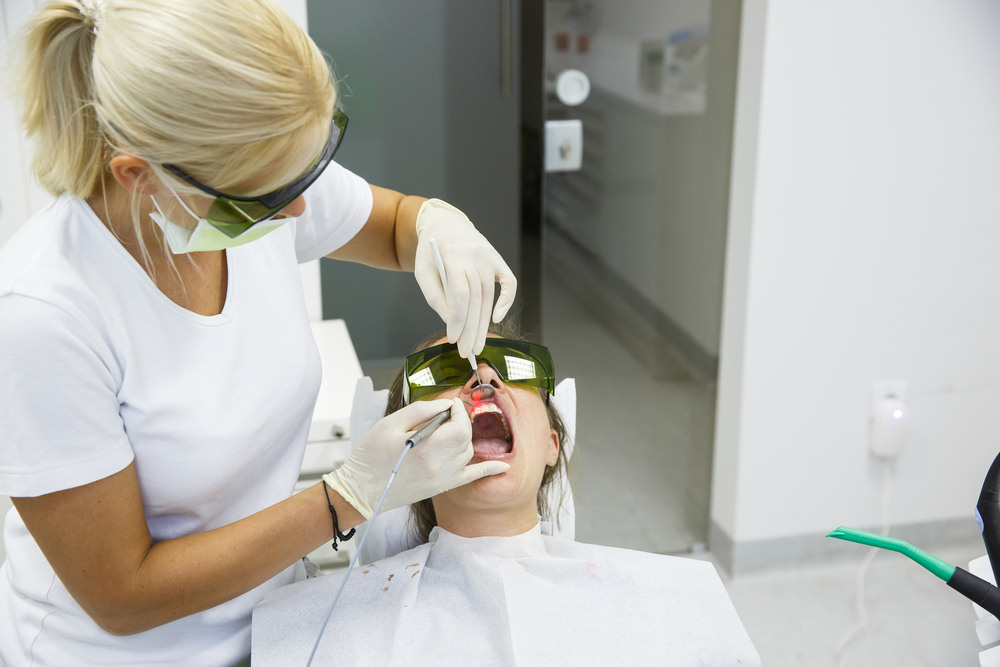What are Lingual Braces?
Lingual braces – also known as internal braces – are a lesser-known tooth straightening treatment than Traditional braces.
The good news is that they are becoming more popular, especially with adults.
This is due to the fact that they are basically invisible. Attached to the inside of your teeth instead of the outside, this means others cannot see them when you smile.
As such you may feel more comfortable wearing them in both social and professional environments, such as your workplace.
Unfortunately, however, there are some disadvantages to Lingual braces as well – or we’d all be choosing them!
We’ve done the research below to assist you in figuring out if they are right for you, so you can walk away from your Dentists’ office with a smile on your face.
Do Lingual Braces Work as Well as Traditional Braces?
Lingual braces have a lot of advantages over Traditional braces.
The Dental industry has come a long way since traditional, bulky metal braces were your only option, and Lingual braces are one of those new options.
6 Advantages of Lingual Braces
- Lingual braces are considered the most discreet type of teeth straightening.
- More comfortable than Traditional Braces
- Lingual braces are far less noticeable
- Usually custom-made and offer better, more predictable teeth straightening results
- You are also less likely to get any issues such as decalcification
- Any discolour that occurs from the braces is hidden behind your teeth
Whilst working in a similar way to Traditional braces, they are far less noticeable, which is a major advantage to many people, especially adults.
Lingual braces effectively offer the same outcome as Traditional braces, working in the same way – by using brackets and metal wires to powerfully guide your teeth and align them.
A key difference is the braces are fixed to the backs of your teeth, making them basically invisible from the front.

Lingual braces are attached on the underside of ones teeth.
This makes Lingual braces the most discreet type of teeth straightening.
The metal brackets are custom-made to fit the individual shape of each of your teeth, so you will have no unwanted bulk in your mouth. This means they are more comfortable than Traditional braces.
Besides being basically invisible, Lingual braces are just as effective as Traditional braces when it comes to complex misalignments, such as correcting rotations, evening out the height of your teeth, or closing gaps due to tooth extractions.
In fact, because they are custom-made, Lingual braces may sometimes offer better, more predictable teeth straightening results.
You are also less likely to get any issues such as decalcification and decay that you may get from Traditional braces.
Any discolouration or white spots that do result from wearing the braces will be on the inside of the teeth rather than the outside, so it too will be unnoticeable.
Lingual Braces Disadvantages
Although invisible, you need to remember that Lingual braces are still braces.
6 Disadvantages with Lingual Braces
- Some restrictions on your diet
- Considerations for dental hygiene routines
- Lingual braces could cause issues if you have a large overbite
- More expensive than Traditional metal braces
- Difficulty in your speech
- Not every dentist is qualified to offer Lingual braces
As is the case with Traditional braces, they may place some restrictions on your diet – in particular, throughout your treatment you should avoid eating any food that is very hard, crunchy, or sticky.
This type of food could get stuck behind your teeth and more effort to clean, or perhaps even bend or break the wire.
If you believe this is going to be a problem for you and your lifestyle, you may want to consider a different option.
Another thing you may want to consider is the amount of time you are going to have to spend on your teeth cleaning regime.
It will take more effort to gently brush and floss twice daily, and in some cases can even be a little tricker as it is more difficult to see, making it harder to get the toothbrush and floss in the correct direction.
More to Consider with Lingual Braces
Lingual braces may also create some problems for you if you have a large overbite. You may need to consult your Dentist if this is the case and talk through other options.
This is because the overbite may apply too much pressure on the brackets at the back of your teeth, which will cause the braces to detach too easily.
Lingual braces also tend to be more expensive than Traditional braces. This is because they are custom-made for your teeth – each bracket is designed to perfectly fit each tooth.
Traditional braces are more mass-produced, therefore generally more affordable.
If choosing Lingual braces, you will usually require more frequent appointments with your Dentist, and the appointment times tend to be longer, another reflection of the higher cost.
As they sit closer to your tongue, Lingual braces may cause you some difficulties with your speech.
Whilst this will improve with time, it may cause you trouble at first – the braces on the back of your teeth are going to feel a bit unusual while you are getting used to them, and this may give you a lisp.
Rest assured that you will get used to this though, and it will go away with some time.
Another factor to consider is that, with interest in Lingual braces only growing over recent years, not every Dental professional has experience installing and treating misalignments in this type of braces.
Be sure to consult your Dentist about Lingual braces, take your lifestyle into consideration, and consider whether it is a good option for you.
Do Lingual Braces Hurt?
The pain and discomfort with Lingual braces are less than that with Traditional braces.
The level of pressure being applied to your teeth is usually quite high with Traditional braces, hence the higher level of discomfort.
With Lingual braces, less pressure is applied to your teeth, which allows them to move more freely and creates a more comfortable process.
However, you will still feel some aches and pains whilst the braces are being fitted.
As with any braces, the first few weeks tend to be the most uncomfortable, but any irritation should only last for a limited period of time.
As is the case with Traditional braces, some sores may grow inside your mouth.
Most of this tenderness and soreness is felt on the tongue, and you will notice it most whilst eating or speaking.
However, you will notice any pain, irritation or sores begin to diminish the longer you wear the braces.
Do Lingual Braces take Longer?
No – the length of time that you need to wear Lingual braces is typically the same as it is with Traditional braces.
This varies depending on your case. Generally, you will need to wear them between one to two years before you achieve the result you are hoping for.
However, if your case is extreme this could take longer – usually another year.
During this time, regular Dental visits are required every few months for adjustments and to monitor the development of your teeth.
Is there a Cost Difference Between Traditional Braces?
Yes – Lingual braces do typically tend to cost more than Traditional braces.
This is because they are a custom solution that is made in a dental laboratory to perfectly fit your own teeth.
It is also due to your appointment times – they are longer because it is harder for the Dentist to access and adjust the braces inside the mouth.
Costs will vary depending on your case, including your age, location, and if you are covered by insurance, but your price may range from $8000 – $10,000.
However, it is recommended that you see your Dentist for a consultation and get an accurate quote.
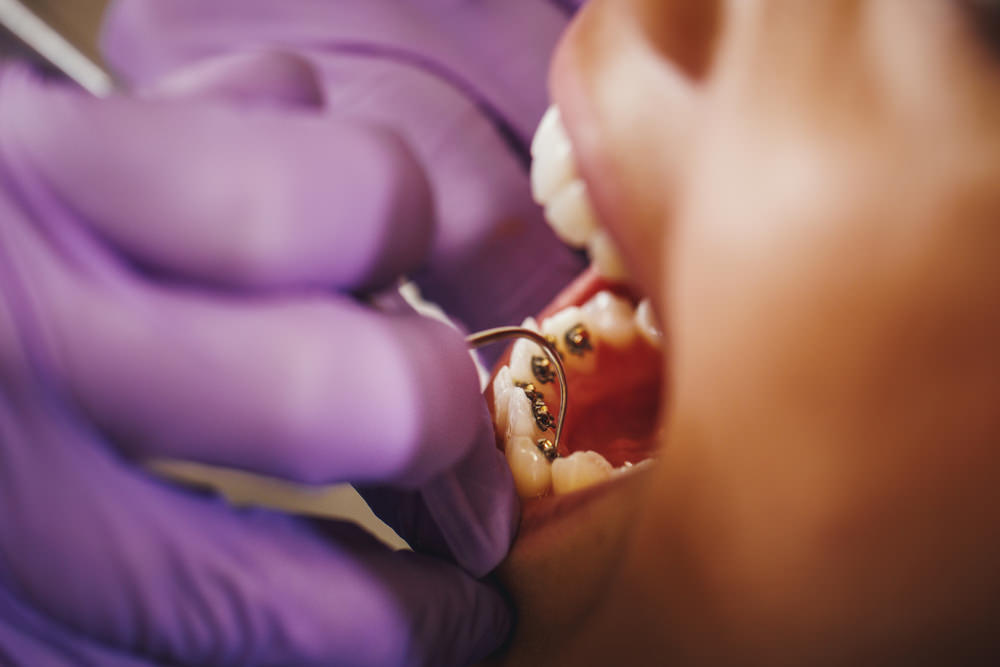
Regular dental checkups are important with Lingual braces
Risks of Getting Lingual Braces Overseas
Many people are going overseas these days for their Dental procedures in order to save money.
However, if you choose to do so, you are doing so at a high risk to your health, and your smile, and even your wallet.
The quality of the materials used overseas may not be as high as what you would get in Australia, and when making Lingual braces, high quality is very important!
You may save money in the short term by booking an overseas dental holiday, but there is always the chance you will end up spending more money in the long term if any problems occur.
All dental materials in Australia are regulated by the Therapeutic Goods Administration (TGA), so you can rest assured that the metal brackets that are custom-made for your very own teeth are of a high standard.
Overseas materials may not be up to this same standard, and you may end up having to get the brackets replaced – resulting in more expenses.
You will probably not be covered by travel insurance if any issues arise as a result of your dental procedure, and if you need to return to the dental clinic to have more work done you are going to have to end up paying more than you originally intended.
Dental Standards
Australian Dentists have been trained to a very high standard, must be registered, and are only allowed to operate in strictly-regulated environments.
It is also vital for them to undertake routine training to ensure their knowledge and skills are up to date. Whilst some overseas Dentists are well-trained, not all countries operate to our levels of regulation.
Even if you do have a great Dentist, trying to operate under such a short timeframe is another high-risk.
Your mouth needs time to recover between procedures and rushing your appointments without allowing for this recovery time can lead to many long-term complications.
It also may not allow you all the follow-up appointments that you need to monitor the development of your teeth and adjust your braces.
Our infection control standards in Australia are also the best in the world.
Depending on where you go overseas, you may not be putting yourself under the same level of infection control, which again puts you at high risk.
It’s not out of the ordinary for professionals to see people return from their overseas treatments with “superbugs”.
Conclusion
Even though the list of disadvantages may seem long, it still does not mean Lingual braces are not a good option.
Many people, especially adults, are considering Lingual braces for the simple factor that they are invisible, and this far outweighs any disadvantages, such as the cost, speech difficulties, or diet regulations.
Simply consider your personal preferences and what works best with your lifestyle – but with a growing interest in Lingual braces, more Orthodontists and Dentists are exploring this option as an effective alternative to Traditional braces, and perhaps you should too.
Do you have any further questions about lingual braces?
By Dr. V
Created at April 26, 2019, Updated at January 25, 2025


